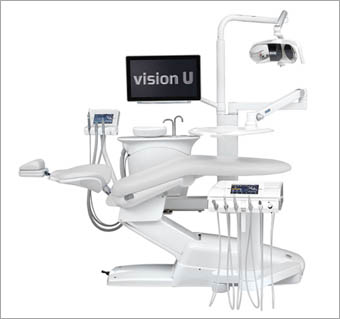

More info
tags: Advies Tandartscompressor – Apparatuur Tandartsen – Chirurgie Tandarts – Expert Tandartscompressor – Leveranciers Tandartscompressor –
Wenst u meer info over advies tandartscompressor kijk dan vlug op https://www.denta.be/ | Advies Tandartscompressor
that prioritize patient comfort.
Factors to consider when choosing a dental compressor
When it comes to choosing a dental compressor, there are several factors to keep in mind. Firstly, consider the size and capacity of the compressor, as it should be able to provide enough compressed air to power all necessary tools. Secondly, noise level should also be a consideration, as a loud compressor can be disruptive to both patients and staff. Additionally, maintenance requirements and cost should also be considered, as well as the quality and lifespan of the compressor.
Benefits of using a high-quality dental compressor
Investing in a high-quality dental compressor offers several benefits for a dental practice. Firstly, it ensures a reliable supply of clean, dry, and oil-free compressed air, which is crucial for patient safety. A good compressor also has a longer lifespan, which means less frequent replacements and repairs. Moreover, a high-quality compressor can also help reduce the overall operating costs of a practice.
How to properly maintain a dental compressor
Regular maintenance is essential to prolonging the lifespan of a dental compressor. It is important to follow the manufacturer´s recommendations for maintenance and replace worn out parts promptly. Additionally, keeping the compressor in a clean and dry environment can also help prevent damage and extend its lifespan.
Conclusion
A dental compressor is a crucial piece of equipment in any dental practice. When choosing a compressor, it is important to consider factors such as size, noise level, and maintenance. Investing in a high-quality compressor offers several benefits, including a reliable supply of compressed air, cost savings, and increased lifespan. Proper maintenance is also essential in prolonging the lifespan of a dental compressor. By carefully considering these factors, you can ensure that your dental practice is equipped with a quality compressor that meets your needs. For more information on dental compressors, visit https://www.denta.be/catalogus/equipment/compressoren/.
Table 1: Outline of the Article
I. Introduction
- Briefly introduce the topic of compressors in dentistry
II. What is a compressor? - Define what a compressor is and its function in dentistry
III. Types of compressors used in dentistry - Discuss the different types of compressors commonly used in dentistry
IV. Factors to consider when choosing a dental compressor - Discuss important factors such as size, noise level, and maintenance
V. Benefits of using a high-quality dental compressor - Highlight the advantages of investing in a reliable dental compressor
VI. How to properly maintain a dental compressor - Provide tips on how to maintain and prolong the lifespan of a dental compressor
VII. Conclusion - Summarize the main points and importance of using a good quality dental compressor
Table 2: Compressoren Tandheelkunde Advies Tandartscompressor
A dental compressor is an essential piece of equipment that is used in most dental practices. Its main function is to provide a continuous supply of compressed air for various dental procedures. When it comes to selecting the right compressor for your dental practice, there are several factors to consider. In this article, we will discuss the different types of compressors, what to look for when choosing one, and the benefits of investing in a high-quality dental compressor.
What is a compressor?
A compressor is a device that compresses air and stores it in a tank for later use. In dentistry, the compressed air is used to power dental handpieces, air scalers, and other tools. This ensures a constant supply of clean, dry, and oil-free air to perform various procedures efficiently.
Types of compressors used in dentistry
There are three main types of compressors used in dentistry – oil-based compressors, oil-free compressors, and silent compressors. Oil-based compressors are the most common and use oil to lubricate the pump. Oil-free compressors, on the other hand, do not require oil and are more suitable for smaller practices. Lastly, silent compressors offer the advantage of being quiet, making them ideal for practices
Advies tandartscompressor
!–StopPubText–>.
